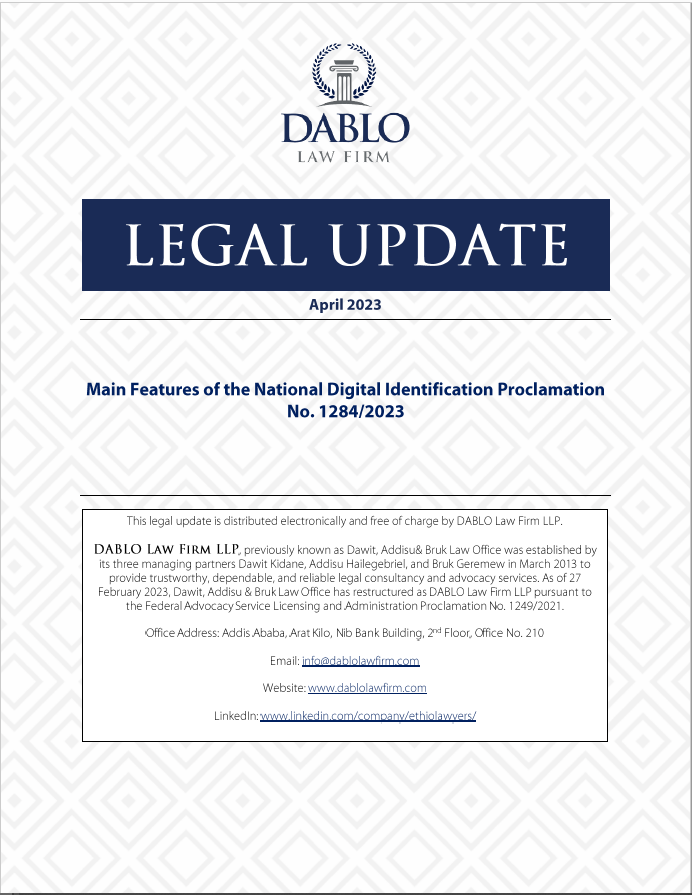Main Features of the National Digital ID Proclamation No. 1284/2023
A digital ID system has various benefits when it is implemented in a country. Among its benefits, it helps with proper planning of national development, creates an economic transition, ensures good governance, reduces waste of resources, prevents crime, reduces duplication, and enhances inclusiveness when policies are formulated and development activities are carried out.
The Nature of the Digital ID: The Proclamation introduces a foundational ID system that can be used in any kind of service in the country where it is issued and serves as a source of information for functional ID. The Digital ID has a unique number given to a person living in that country after registering by providing biometric and demographic information to the institute or a body that is given authority by the institute. Hence, the ID system is a secured system that enables the identification of the individual in a distinctive manner. As stated under Article 14 of the Proclamation, the digital ID is used as sufficient and legal evidence of one’s residency. It is acceptable in all parts of the country, and refusal to provide service with this ID will result in criminal liability.
The Right to Obtain a Digital ID: Every person living in Ethiopia has the right to get a digital ID by registering and providing biometrics (fingerprints of 10 fingers, the iris of both eyes, and face structure) and demographic information (name, date of birth, citizenship, gender, address, phone number, etc.).
Relation with Other IDs: Although digital ID is fully functional by itself, it is a type of ID that reinforces other IDs. Moreover, a procedure to ensure that all functional IDs are entered into the digital ID system is set in place. To this effect, arrangements have been made with the National Bank of Ethiopia and the Ministry of Revenue.
Information Management System: Article 16 of the Proclamation prohibits disclosing, transferring, or changing the personal information of any registrant without consent unless it is necessary for the work of justice and is to a legal entity authorized by law or court order.
Disclaimer: The views and opinions expressed do not reflect the official policy or position of DABLO. The writing is not intended to be, and should not be used as, a substitute for taking legal advice in any specific situation.
©2023 DABLO Law Firm LLP






